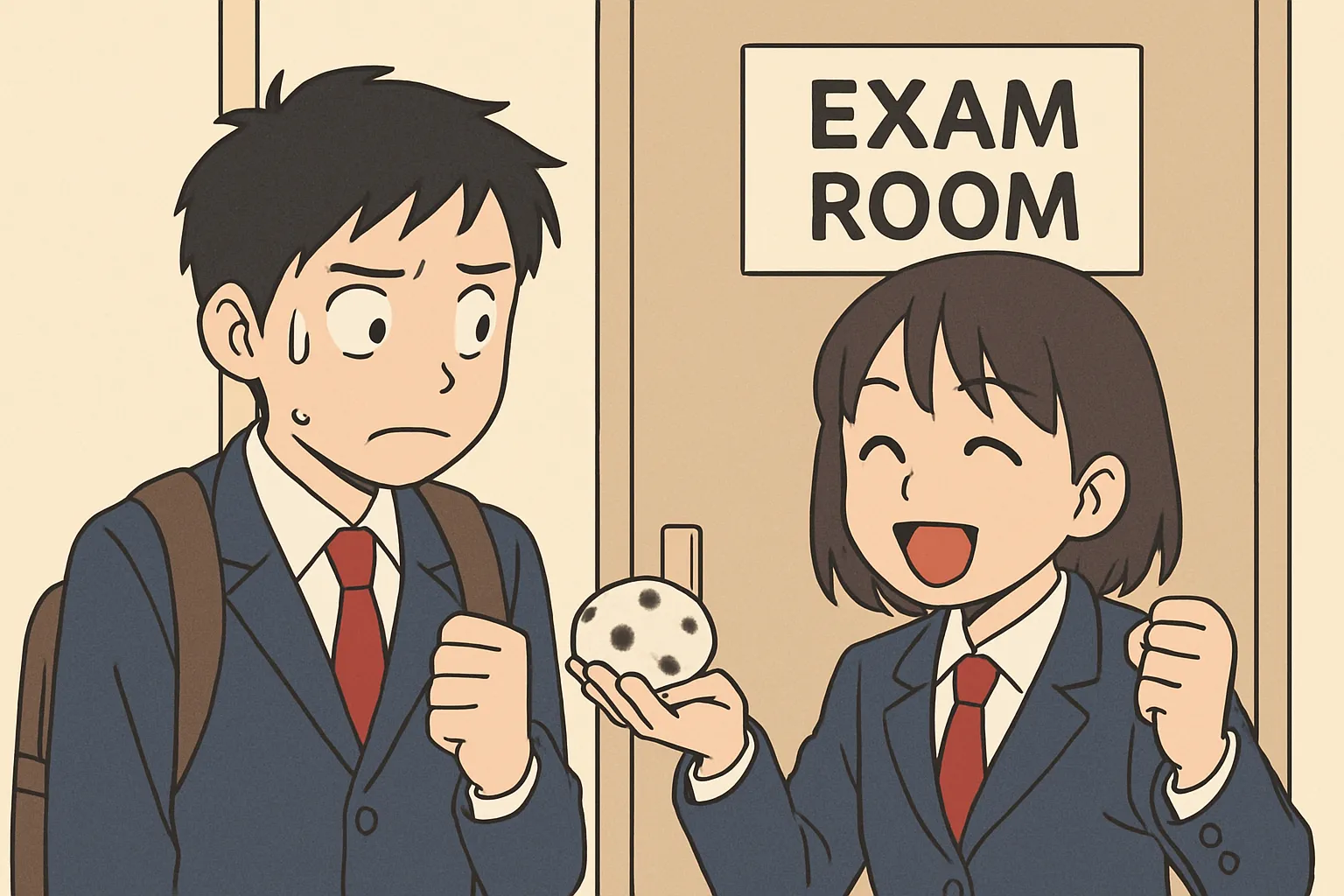Crack the Code: The Philosophy of Korean Laughter
Hello! Welcome to Maeil Hangul, your secret weapon for leveling up your Korean skills!
Today, we’re diving into a topic that’s guaranteed to bring a smile to your face: the philosophy and psychology of laughter in Korea. This isn’t just about “ㅋㅋㅋ”; we’re exploring the sophisticated ways Koreans express and think about humor. Why now? Lately, Korea has seen a huge resurgence in sketch comedy, especially on YouTube channels like ‘Psick University’ and ‘BDNS’. This isn’t just slapstick; it’s witty, satirical, and deeply relatable humor that often makes you think. Understanding the language around it will not only make you laugh along with Koreans but also give you a profound insight into the modern Korean psyche.
Let’s get ready to analyze what makes Korea laugh!
Core Expressions: Beyond Just ‘Funny’
Here are some advanced expressions that will help you discuss humor like a native speaker.
1. 배꼽 빠지게 웃다 (baekkop ppajige utda)
- Pronunciation: [bae-kkop ppa-ji-ge ut-da]
- English Meaning: To laugh your head off; To laugh until your belly button falls out.
- Detailed Explanation: This is a classic, wonderfully expressive idiom. Literally meaning “to laugh so hard your belly button falls out,” it’s the perfect hyperbolic phrase for when something is incredibly funny. It’s informal and used to emphasize just how much you laughed. Think of it as the Korean equivalent of “I died laughing” or “laughing my guts out.”
2. 실소를 터뜨리다 (silso-reul teotteurida)
- Pronunciation: [sil-so-reul teo-tteu-ri-da]
- English Meaning: To let out an involuntary laugh; to snort with laughter.
- Detailed Explanation: 실소 (失笑) literally means “lost laughter.” This isn’t a joyful, hearty laugh. It’s the kind of laugh that escapes you when you’re trying to be serious, or when something is so absurd or awkwardly true that you can’t help but let out a short burst of laughter or a snort. It implies a situation where laughter wasn’t the intended or appropriate reaction, adding a layer of psychological complexity.
3. 해학적이다 (haehakjeogida)
- Pronunciation: [hae-hak-jjeo-gi-da]
- English Meaning: To be humorous (in a witty, satirical, or warm-hearted way).
- Detailed Explanation: This is a sophisticated adjective that goes beyond simple funniness (재미있다). 해학 (諧謔) refers to a higher form of humor that often contains wit, satire, social commentary, or a warm, humane perspective. You would use it to describe a clever film, a satirical novel, or the nuanced comedy sketches popular today. Using this word shows a deep appreciation for the art of comedy.
4. 뼈 때리다 (ppyeo ttaerida)
- Pronunciation: [ppyeo ttae-ri-da]
- English Meaning: (A comment) hits the bone; hits too close to home.
- Detailed Explanation: This is a very popular modern slang phrase. Literally “to hit the bone,” it describes a remark, joke, or observation that is so brutally honest and accurate that it feels like a physical blow. While it can be painful, it’s often used in a humorous context to acknowledge a hard truth. For example, a comedian’s joke about the struggles of job searching might be described as “뼈 때린다” because it’s painfully relatable, yet funny.
Example Dialogue
Two friends, Jimin and Sujin, are talking about a popular comedy sketch they saw on YouTube.
A (Jimin): 어제 ‘BDNS’ 채널에서 새로 나온 회사 생활 풍자 영상 봤어? 지하철에서 보다가 실소를 터뜨렸잖아.
(Eoje ‘BDNS’ chaeneoreseo saero naon hoesa saenghwal pungja yeongsang bwasseo? Jihacheoreseo bodaga silsoreul teotteuryeotjana.)
Did you see the new video on the ‘BDNS’ channel yesterday satirizing office life? I was watching it on the subway and just burst out laughing.
B (Sujin): 아, 그거! 나도 봤어. 완전 배꼽 빠지게 웃었네. 특히 부장님 말투 따라 하는 거, 너무 뼈 때려서 소름 돋았어.
(A, geugeo! Nado bwasseo. Wonjeon baekkop ppajige useonne. Teuki bujangnim maltu ttara haneun geo, neomu ppyeo ttaeryeoseo soreum dodasseo.)
Oh, that one! I saw it too. I laughed my head off. Especially the part where they imitated the boss’s way of talking—it hit so close to home it gave me goosebumps.
A (Jimin): 맞아. 그냥 웃기기만 한 게 아니라 되게 해학적이더라. 현실을 꼬집는 방식이 정말 날카로워.
(Maja. Geunyang utgigiman han ge anira doege haehakjeogideora. Hyeonsireul kkojipneun bangsigi jeongmal nalkarowo.)
Exactly. It wasn’t just funny, it was truly witty. The way they critique reality is so sharp.
Culture Tip & Trend Deep Dive
The rise of phrases like 뼈 때리다 (ppyeo ttaerida) perfectly captures the current mood in Korean comedy. While grand, slapstick shows were popular in the past, today’s Korean youth (especially Millennials and Gen Z) gravitate towards humor that is sharp, observational, and deeply relatable. YouTube comedy channels have become masters of this. They create characters and situations that mirror the anxieties and absurdities of modern life in Korea—from brutal job interviews to the nuances of dating app culture.
This type of humor is considered highly 해학적이다 (haehakjeogida) because it does more than just make you laugh; it offers social commentary. It’s a way for people to connect over shared struggles and find relief in the fact that they’re not alone. So, when you hear a Korean say a joke was “뼈 때린다,” they’re giving it a high compliment. They’re saying it was not just funny, but insightful and true. Understanding this will help you connect with Korean culture on a much deeper, more authentic level.
Let’s Wrap It Up & Practice!
Today we learned that laughter in Korean can be much more than just “ㅋㅋㅋ”. We explored:
* 배꼽 빠지게 웃다: For when you’re laughing hysterically.
* 실소를 터뜨리다: For that involuntary laugh at something absurd.
* 해학적이다: To describe witty, insightful humor.
* 뼈 때리다: For a joke that’s painfully true.
Now it’s your turn to practice!
- Sentence Building: Think of a movie, TV show, or comedian you find truly brilliant. Using the adjective 해학적이다, write one sentence in Korean describing why you find their humor so clever.
- Nuance Challenge: In your own words, explain a situation where you might 실소를 터뜨리다 versus a situation where you would 배꼽 빠지게 웃다.
Leave your answers in the comments below! We’d love to see how you use these fantastic expressions. Keep laughing and keep learning






